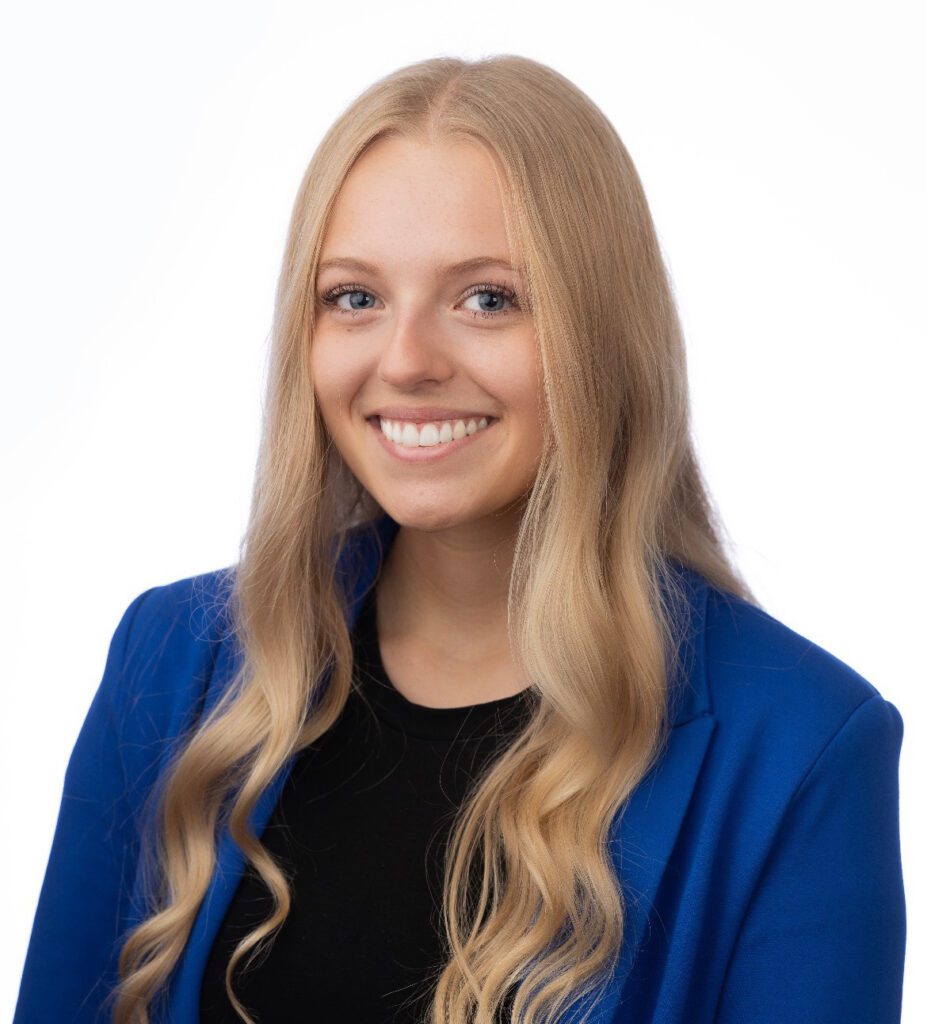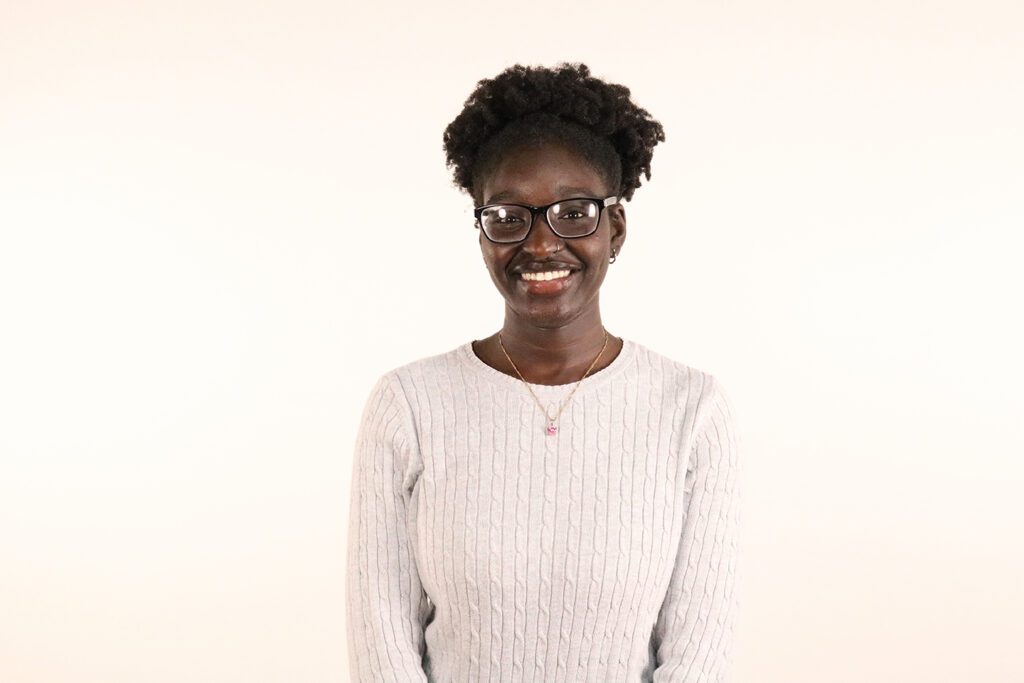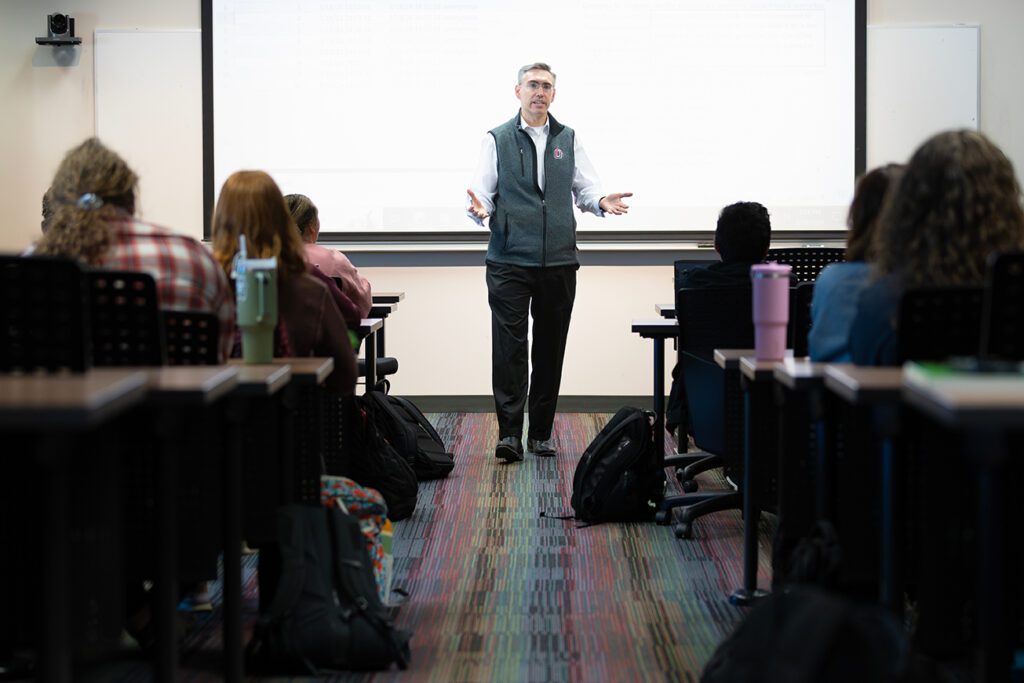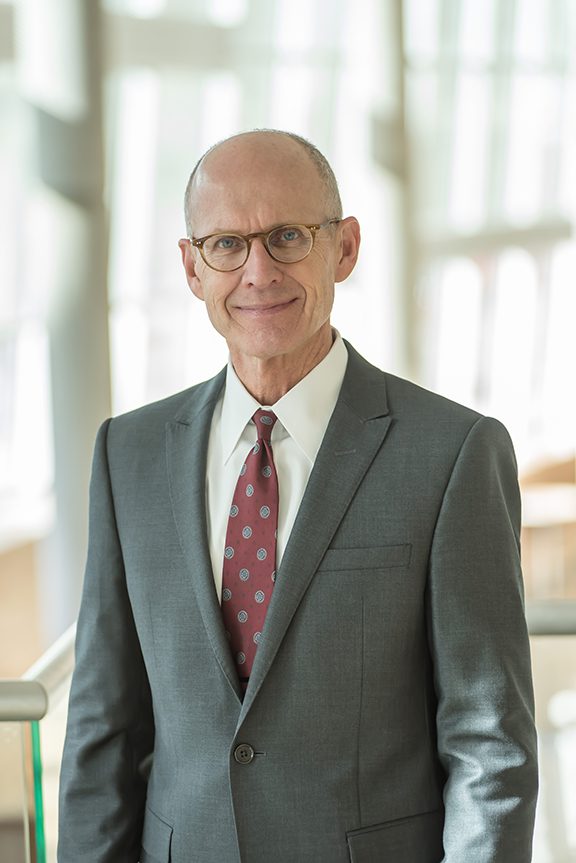Students Interested in Health Care Start Their Careers at UNO
By Robyn Murray
For Cami Bisson, it was a class called Introduction to Health Careers that got her started. Now a senior at the University of Nebraska at Omaha, Bisson discovered a career she’d never considered: genetic counseling.
“I was, like, wow, that is super interesting,” Bisson said, “to be able to know and understand how these [genetic] interactions unfold and are responsible for everything that goes on in our bodies every single day.”
When Bisson, a first-generation college student, first enrolled at UNO, she didn’t want to work in health care. Her mother is a medical assistant, and Bisson had seen the long hours she put in and how she sometimes took a second job to support her family. But when Bisson learned more about her options, she changed course.
“There was something about being in the medical field, of having a knowledge base and being able to share that with people, while also getting to hear other people’s perspectives and stories based on their experiences, that really drew me in,” Bisson said.
Bisson is just the kind of student Nebraska needs. The state is facing a severe shortage of health care professionals. From physicians to dentists, pharmacists to occupational therapists, counties across the state are in dire need. As the University of Nebraska Medical Center’s closest partner by proximity, UNO plays an essential role in tackling this challenge by providing foundational STEM classes and a path to a health professions education. But that can be a tall order, because pursuing a career in health care requires a lot — of education, money, time and, critically, confidence.

Financial support goes a long way; mental support goes a long way, because it’s a long process for students who are thinking of pursuing higher education beyond the college level.
Winnie Ladu
“It’s intense,” said Paul W. Denton, Ph.D., assistant professor of biology at UNO. “The competition is very high to get into health care, and students feel the pressure even before they walk onto campus. They wonder if one mistake can remove their potential.”
Denton said one setback can get in the way of a student completing their undergraduate degree before they’ve even had a chance to get into their health care training program. That is particularly true for first-generation college students, who may not have support networks at home or resources to draw from. He recalled a student whose car was totaled after she was rear-ended. She couldn’t afford to replace it, so she struggled to get to class.
“It’s heartbreaking to see somebody who, if something bad happens, can’t get themselves out of that hole,” Denton said. “It can change their trajectory completely.”
Ensuring pre-health students receive the support they need to succeed is a top priority for the College of Arts and Sciences in Only in Nebraska: A Campaign for Our University’s Future.


Denton said an emergency fund would go a long way to supporting pre-health students. One resource currently on campus is shepherding pre-health students through graduation. The Urban Health Opportunities Program, which is partly supported by private donations, offers full tuition assistance, wraparound support and guaranteed entry to UNMC if program requirements are met. For students like Winnie Ladu, a pre-health senior at UNO, UHOP made all the difference.
“Financial support goes a long way, mental support goes a long way,” Ladu said. “Because it’s a long process for students who are thinking of pursuing higher education beyond the college level.”
Ladu is the daughter of South Sudanese immigrants and aims to attend UNMC in the fall with plans to become a physician. She said the South Sudanese community in Omaha will celebrate with her.
“I think it’ll be a great accomplishment for not only myself, but for all of us,” Ladu said, “because we all hold each other up.”
As a physician, Ladu hopes to serve the South Sudanese community in Omaha as well as other refugee and immigrant groups. She believes she will connect with them as a health care provider who shares their background. Diversity in the health care workforce is another critical need, as Nebraska’s demographics continue to change.


“Studies have clearly shown that when you train someone from a community and they return to that community, the payback is awesome,” said Paul Davis, Ph.D., professor of biology and the director of the Health Careers Resource Center, which manages UHOP. “The community feels more connected, the individual patient feels connected to their provider, and providers are able to give back beyond just their day job. Those things really move the peg.”
Davis said, as the state’s metropolitan university, UNO draws people from various backgrounds, which is particularly helpful to address the health care shortage but also means students enter UNO at all levels of preparedness.
“The undergraduate university experience is really where it should all come together,” Davis said. “The goal of coming to a place like UNO is to help bring everyone up to the same level, so that by the time they leave they’re ready for the challenges.”
Davis said he wants to ensure UNO’s STEM education continues to excel, and he hopes to reach more students earlier. Denton works with UNO students who serve as STEM mentors in Omaha’s public schools, which he said pays dividends.
“If you try to engage students at the college level and they’ve already convinced themselves that they can’t do math, or that they’re not a science person, you can’t really reach them,” Denton said.
“I think we need to help build our K12 students up even before they get to UNO, because we might bring some students to campus who otherwise would never have created a shadow on our door.”





